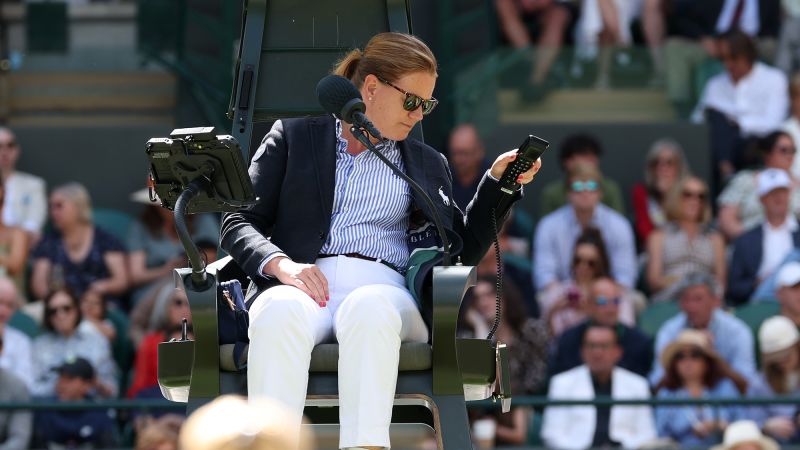Wimbledon Organizers Cite Ball Boy for Electronic Call Error

Organizers of this year’s Wimbledon have attributed a significant error in the electronic line calling system to a ball boy’s actions during a quarterfinal match on July 11, 2023. The incident unfolded during the match between Taylor Fritz of the United States and Karen Khachanov from Russia. While Fritz was serving in the fourth set, the system erroneously called a “fault” mid-point, prompting chair umpire Louise Azemar-Engzell to step in. After consulting via phone, she declared the point should be replayed “due to a malfunction.”
The All England Lawn Tennis and Croquet Club (AELTC) explained in a statement to CNN Sports that the error occurred because the electronic system did not recognize the start of the point. “The player’s service motion began while the BBG (ball boys and girls) was still crossing the net and therefore the system didn’t recognize the start of the point,” the AELTC noted. Consequently, Azemar-Engzell ruled for the point to be replayed.
During the incident, video replays indicated that the ball boy had just retrieved a stray ball as Fritz prepared to serve. Despite the brief disruption, Fritz ultimately secured his place in the semifinals, winning the match 6-3, 6-4, 1-6, 7-6(4).
Previous Blunders and System Controversy
This latest incident follows another controversy that occurred on July 9, 2023, during a match featuring Anastasia Pavlyuchenkova and Sonay Kartal. In that match, the electronic system was accidentally turned off during a crucial moment. A backhand from Kartal was called out, but the system failed to register the “out” call, leading to confusion on the court. As Pavlyuchenkova was poised to win the game, she halted play, believing the ball had landed outside. The chair umpire, Nico Helwerth, intervened, and the automated system audibly instructed the players to “stop, stop,” further adding to the confusion for both players and spectators.
The automated system failed to detect balls landing out on three separate occasions in that match, with Helwerth intervening on the other two instances. Organizers attributed this malfunction to “human error” and have since revised the operational protocols for the electronic calling system.
The decision to replace traditional line judges with electronic systems marks a significant shift at Wimbledon. Traditionally, human line judges have been a hallmark of the prestigious tournament. However, in October 2022, the AELTC announced that electronic calling would be adopted in future competitions, aligning with practices already in place at the ATP and WTA Tours, as well as the Australian and US Opens. Notably, Roland Garros remains the only Grand Slam tournament to continue using human line judges for calling “out” and “fault.”
Player Reactions to Electronic System
Mixed reactions from players have surfaced regarding the accuracy of the electronic calling system during its debut at Wimbledon. British players Jack Draper and Emma Raducanu have both expressed skepticism. Raducanu described the system as “dodgy,” reflecting growing frustration among players concerning its reliability amid high-stakes matches.
As Wimbledon progresses, the AELTC faces the challenge of ensuring that technology enhances the integrity of the sport rather than detracting from it. The recent incidents have highlighted the need for careful monitoring and adjustments as the tournament navigates this transition in officiating.






